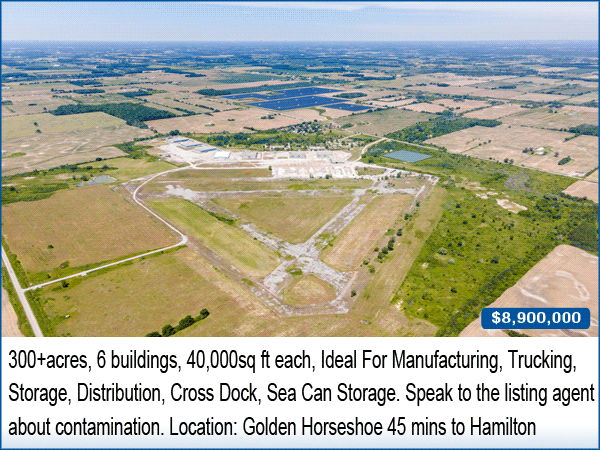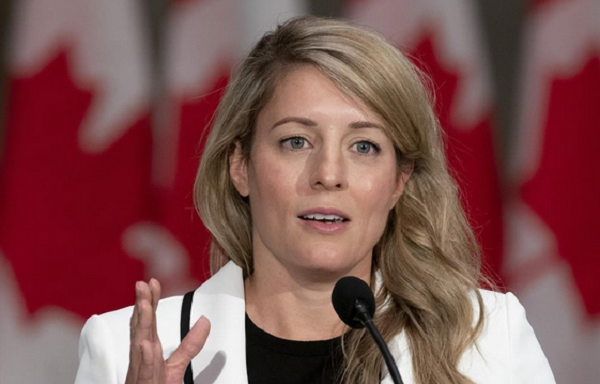Canada not different from other nations on refugees’ challenges
Canadians like to boast about being a country of immigrants and refugees, but our bragging rights only go so far.
Take a look around.
Much of our moral superiority derives from looking down on the increasingly coarse political discourse of Americans. We reflexively turn our noses up at seeming U.S. paranoia over illegal migrants and fantasies of building a border wall.
But at the first sign of surging migration — legal or illegal — Canadians can get their backs up faster than anyone.
The latest controversy over abuses of student visas and work permits serves a reminder that we can be sticklers for rules no less than others. And let’s not forget the furor over unauthorized border crossings at Roxham Road, until Ottawa persuaded Washington to close the Canada-U.S. gap last year.
Yet even these occasional flashpoints consume us, rising to the top of our news cycle. Imagine how much more vexed and obsessed Canadians would be if not for our unrivalled geographical isolation, which shields us from the crises that unavoidably preoccupy others.
Set aside the border with Mexico for a moment. Consider instead the Mediterranean and the English Channel, which link all of Europe to all of Africa and the Middle East — tempting countless boat people to risk drowning as they escape old miseries for new opportunities.
On a recent visit to Dublin and London, it was impossible to ignore the human migration byplay. Even at the far ends of Western Europe, Britain and Ireland are on the front lines of a seemingly unstoppable migration wave that is destined to disrupt every country — and overturn all our assumptions about how to do the right thing.
The Irish like to think of themselves as more moral than most — they sound so very Canadian. But from the moment you deplane in Dublin, you see border patrol officers interrogating migrants for their paperwork on the sidelines while everyone else clutches their passports in the queue.
On the streets of the capital city, homeless encampments are a familiar sight, sheltering refugees with nowhere to go. On the front pages of the country’s newspapers, the issue never seems to go away.
Ireland, long a country of emigration, is now a destination for migration. Outbound has become inbound, which is turning its politics upside down.
To be clear, the Irish have done their fair share of helping Ukrainian refugees resettle on their shores. More than 100,000 people displaced by Russia’s invasion are living and working in the republic, one of the highest intake rates in Europe given its own small population of 5.3 million.
That’s an economic bonus for the Irish, given that their unemployment remains at a rock bottom 4.2 per cent amid resurgent tourism. But Ireland’s long-standing housing crisis is even more acute than Canada’s sudden shortage.
Now, a surge in claimants has triggered economic and political pressure on a country that, like Canada, prides itself on laying out the welcome mat. When I visited recently, the Taoiseach (Ireland’s prime minister) announced an expansion in refugee centres, but also a decline in government supports for Ukrainians:
“It’s so important that we maintain social cohesion,” Simon Harris said earnestly last month. “Irish people are a good and decent people who see the benefits of migration. They also like to see a bit of common sense when it comes to migration.”
A Canadian politician couldn’t have put it better. But beyond welfare adjustments, he also announced a broader refugee review because of how many are “still living in free state accommodation without making a contribution.”
The Taoiseach might have added that the Irish, like their Canadian cousins, can also count.
Fully one-third of all asylum seekers so far this year are coming from Nigeria — nearly double the rate of a year ago. That so many emanate from Nigeria — a perennial source of dubious claims compared to true global hot spots — seems reminiscent of similar distortions among claimants in Canada.
Belatedly, the Irish are designating Nigeria a “safe country” that triggers “fast processing” for claimants (to deter long stays). Interestingly, most Nigerians come not by boat or plane — there are no direct flights between the two countries — but overland from Northern Ireland, making their way via the United Kingdom.
Their sudden exodus from the U.K. is likely motivated by the anti-migration mania gripping British politics, with Prime Minister Rishi Sunak’s Conservative government concocting an accord with Rwanda to relocate refugee claimants before they put down roots on British soil. The outcry — legally, morally, politically — over his strategy dominates the headlines, but it is Ireland’s retrenchment that is perhaps more telling.
In Dublin, opposition Labour Leader Ivana Bacik described the encampments in Dublin as a local manifestation of London’s Rwanda policy: “This failure, resulting in so many tents, this amounts to a sort of Rwanda policy for the Irish government … as if they’re seeking to send out a signal to those who may be coming to Ireland to claim refuge.”
Times change. Tones change.
This article was first reported by The Star












